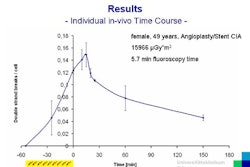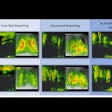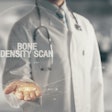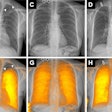Heart attack patients who experience rapid or abnormal heart rhythms before or after coronary artery intervention or stent placement are far more likely to die within 90 days of the procedure, researchers report in the May 6 Journal of the American Medical Association.
Dr. Rajendra Mehta from the Duke Clinical Research Institute in Durham, NC, aimed to improve understanding of outcomes associated with sustained ventricular tachycardia or fibrillation (VT/VF) in patients with ST elevation myocardial infarction (STEMI) undergoing coronary angioplasty or percutaneous coronary intervention (PCI).
The study evaluated the association of VT/VF and the risk of death at 30 and 90 days in 5,745 patients with STEMI undergoing PCI at 296 hospitals in 17 countries, the authors reported (JAMA, May 6, 2009, Vol. 301:17, pp. 1737-1844).
VT/VF occurred in 5.7% of the patients, with 90% occurring within 48 hours of the procedure and 64% before the end of catheterization, the authors wrote. Death rates were significantly higher in patients with VT/VF compared to those without it (90-day death rate, 23.2% versus 3.6%, respectively). Late VT/VF was associated with particularly poor outcomes, while those with early VT/VF still had a far higher event rate compared to patients without VT/VF (90-day mortality for early VT/VF, 17.2%; for late VT/VF, 33.3%).
Factors associated with early VT/VF included lower systolic blood pressure, higher body weight, and higher heart rate; factors related to late VT/VF included lower systolic blood pressure, higher heart rate, and lack of beta-blockers on admission, the authors wrote.
"Because, currently, the majority of patients with STEMI worldwide are routinely monitored for longer than 72 hours, our findings have the potential to decrease resource use without compromising patient safety when a risk-based strategy of monitoring or early discharge is followed," Mehta and colleagues wrote.
Related Reading
Tube current modulation cuts triple rule-out CTA dose, April 15, 2009
Percutaneous cardiovascular procedures 'strikingly better' with radial access, March 10, 2009
CABG remains superior to PCI for severe coronary disease, February 19, 2009
Coronary CTA pinpoints at-risk CABG patients, December 11, 2008
Copyright © 2009 AuntMinnie.com



















